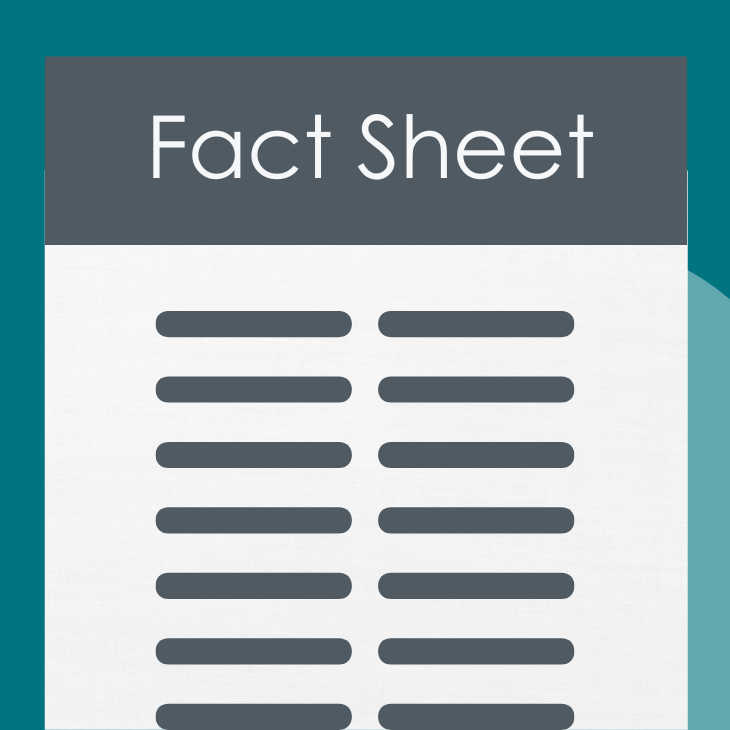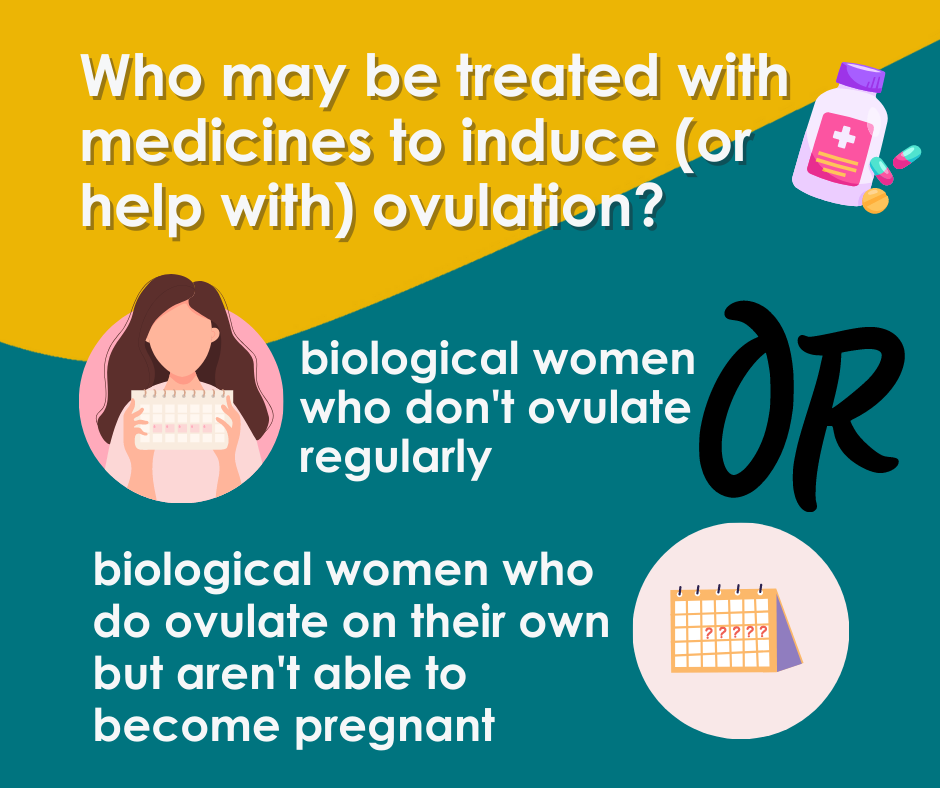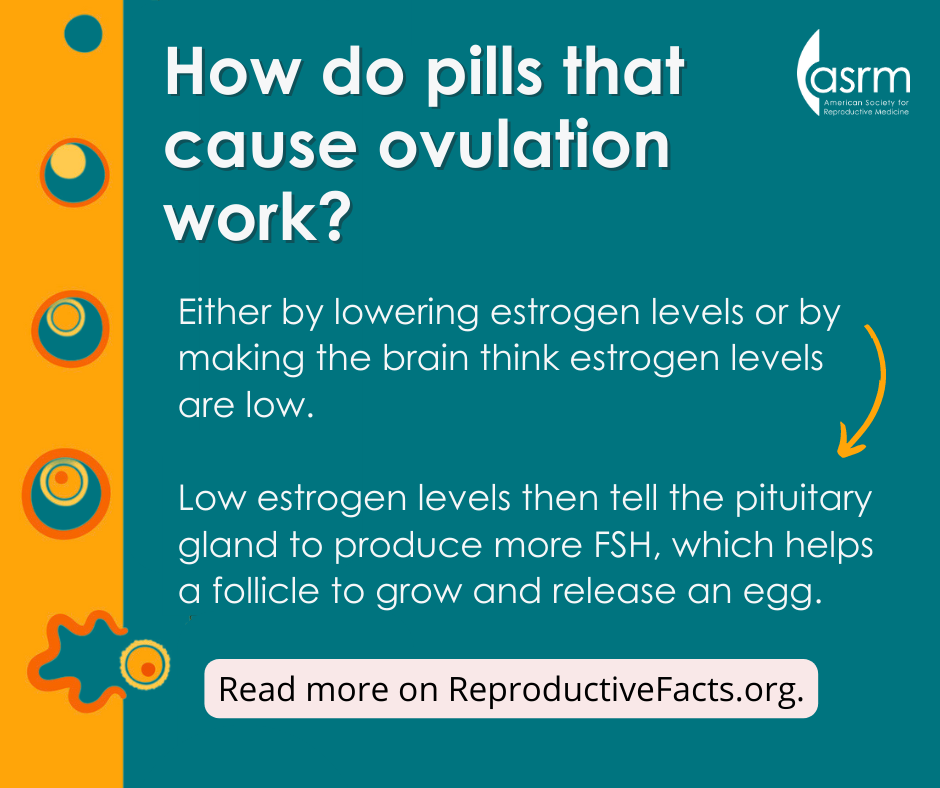
Created 2021/Updated 2023

Who should be treated with medicines to induce (cause) ovulation?
Some women may need medicines to help them ovulate (release eggs). This is called ovulation induction and may be done for two reasons. The first is when a woman doesn’t ovulate regularly. The medicines help the ovary mature and release eggs. The second is when a woman ovulates on her own, but still isn’t able to get pregnant. In that case, medicines may be given to help her release more than one egg as a part of a fertility treatment. Your doctor can determine if ovulation induction is right for you.
What oral medicines are used for ovulation induction?
The most commonly used medicines are clomiphene citrate (CC), aromatase inhibitors (AIs) such as letrozole, and insulin-sensitizing agents (ISAs) such as metformin.
How do these medicines work?
During the first days of a normal menstrual cycle, estrogen (hormone) levels are low, and your pituitary gland produces follicle-stimulating hormone (FSH) in response to these low estrogen levels. As FSH levels rise, one main follicle (a small cyst that houses an egg) grows and releases estrogen.

AIs and CC work by lowering estrogen levels and by making the brain think they are low, respectively. CC works by helping cells resist estrogen. AIs work by blocking certain kinds of hormones (androgens) from changing into estrogen. Low estrogen levels tell the pituitary gland to produce FSH, which helps a follicle to grow and release an egg.
ISAs can be along with CC or AIs. Women who don’t ovulate regularly because of polycystic ovary syndrome (PCOS) may produce too much insulin and androgens. ISAs help lower insulin and androgen levels to help with follicle growth. Sometimes they are used in women found to have pre-diabetes.
Are there any risks in taking ovulation induction medicines?
The most common risk is multiple pregnancy. The chance of twins is 5%-8% with CC and AIs; the chance of triplets or a higher-order multiple pregnancy is less than 1% with these medicines. ISAs do not increase the risk of multiple pregnancies by much, if at all. While this risk seems small, it is much larger than the incidence of higher-order, multiple pregnancy in natural conceptions.
Ovarian cysts may occur and can sometimes become large and painful; however, it is uncommon for these cysts to require any treatment as they resolve on their own. There is no link between these medicines and ovarian cancer. There is no known increase in birth defects in women who have taken these medicines to induce ovulation.

Is any monitoring required while I am taking these medicines?
Your doctor will decide how much monitoring you need based on your history and reason for infertility. Some women use home ovulation-predictor kits to show when an egg will be released. This can help time intercourse during the fertile window (the time around when the egg is released).
How effective are these medicines in helping a woman get pregnant?
The success of these medicines depends on many factors. In women not already ovulating, almost 80% of women who use CC or AIs over several months will ovulate. Some women will need increasing doses of the medicines. Pregnancy rates depend on your age, the length of infertility, and the cause of infertility. These medicines are generally more effective in women who do not ovulate regularly. In women who already ovulate, pregnancy rates tend to be lower, especially if the medicines are not combined with other treatments like insemination. Your doctor can give you specific information about your chances of getting pregnant.
Ovulation Induction
Fact Sheets/Booklets
View more fact sheets and booklets written by the ASRM Patient Education Committee.
Menopausal Transition (Perimenopause): What Is It?
The menopausal transition (perimenopause) is the period that links a woman’s reproductive (childbearing) years and menopause.
Osteoporosis
Osteoporosis and osteopenia are conditions of having low bone mass (density).
Hyperprolactinemia (High Prolactin Levels)
Prolactin is a hormone produced by your pituitary gland which sits at the bottom of the brain.Find a Health Professional











